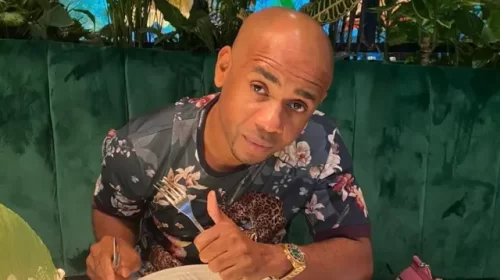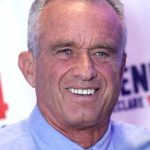Equatorial Guinea’s Director General of the National Financial Investigation Agency (ANIF), Baltasar Ebang Engonga, is at the centre of a scandal following the leak of explicit videos allegedly involving him in intimate encounters with multiple individuals. Originally investigated for alleged fraud, Engonga now faces public backlash and intensified scrutiny over his professional conduct and personal life. This controversy has sparked widespread reaction on social media and raised questions regarding ethics, public responsibility, and potential health risks associated with his actions. As the scandal unfolds, government authorities have initiated an official investigation, underscoring the increasing call for accountability among public officials in Equatorial Guinea.
Baltasar Ebang Engonga’s sex tape scandal

The scandal began when investigators, initially looking into Engonga for suspected fraud, reportedly discovered over 400 videos on his computer depicting private interactions with various individuals. These encounters allegedly involved multiple partners, including his brother’s wife, a cousin, and a relative of the President. According to sources, the videos were filmed in locations such as Engonga’s office, hotels, and even restrooms, with all recorded interactions believed to be consensual.
Once leaked, the videos rapidly circulated across social media, sparking outrage and debate among citizens. Public response to the videos has varied, with many questioning the ethical standards of a high-ranking public official engaging in such activities, while others raised concerns about the privacy breach that led to the leak. Posts across social platforms criticised the conduct of a figure responsible for financial investigations, with some users highlighting the discrepancy between his public role and personal actions.
Attorney General initiates health and privacy investigation
In response to the viral scandal, Equatorial Guinea’s Attorney General’s Office, led by Anatolio Nzang Nguema, launched an official investigation into the circumstances surrounding the video leak. According to a spokesperson, authorities are assessing whether Engonga’s actions may have posed health risks, which could result in additional charges if confirmed.
“If proven, he could face charges for endangering public health,” the spokesperson commented, emphasising that the investigation will extend beyond the videos themselves to assess any potential impact on public health.
This probe into health risks marks a significant expansion of the investigation, as the Attorney General’s office examines both the privacy concerns involved in the leak and the broader implications of Engonga’s behaviour on public welfare. The investigation is expected to review the conduct of government officials and enforce measures to maintain accountability.
Vice President Teodoro Nguema calls for accountability
In a public statement, Vice President Teodoro Nguema took to X (formerly Twitter) to address the scandal, emphasising the need for accountability among public officials. Nguema noted that government offices must be strictly reserved for official duties, signalling disapproval of the misuse of government resources and office spaces for personal purposes.
Nguema announced that the government would be implementing new, stricter policies to ensure that misconduct within the administration is met with serious disciplinary action. He further stated that officials found guilty of misusing their authority or resources could face termination or other consequences as deemed appropriate. This stance reflects a broader governmental shift towards enforcing ethical standards and reinforces the message that public officials will be held responsible for their actions, especially when it comes to misuse of office privileges.
Public reaction and rising scrutiny
Engonga, a married man and father of six, holds a prominent position at ANIF, leading financial investigations and initiatives against corruption. However, his involvement in the leaked videos has placed his career and reputation under intense public scrutiny. The scandal has opened a wider debate on the expectations placed on public officials, with many citizens questioning whether private conduct should impact public responsibility and ethical standards.
As public opinion continues to weigh in, some have called for Engonga’s resignation, while others argue that privacy should protect personal matters unless they directly impact professional duties. The case has ignited a conversation on the balance between privacy and public accountability, particularly when it comes to those in leadership roles within the government.


